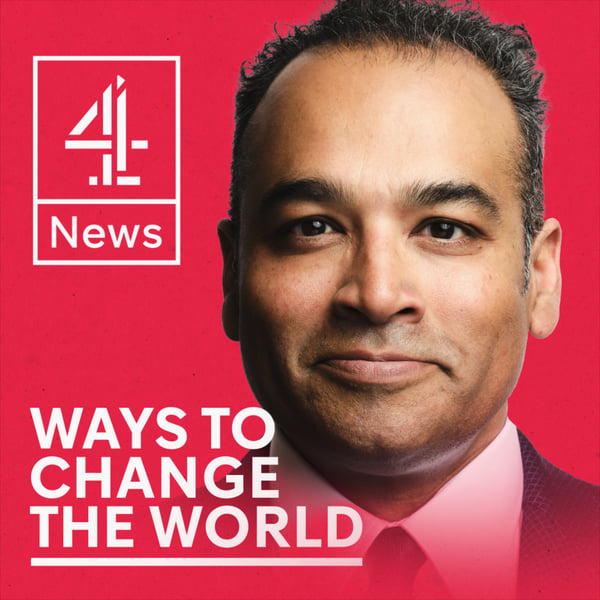Cambridge’s youngest Black professor Jason Arday on Autism, racism, and learning to read at 18
Ways to Change the World with Krishnan Guru-Murthy
Channel 4 News
4.6 • 1.1K Ratings
🗓️ 22 September 2023
⏱️ 31 minutes
🧾️ Download transcript
Summary
"You're categorised as not being particularly intelligent or able," says Jason Arday, an autistic Sociologist who became Cambridge University's youngest black professor.
Jason Arday was unable to speak until he was 11 and could not read or write until he was 18. As a PE teacher in 2012, he wrote a list of goals he wanted to achieve. One of them was to be a professor at Oxford or Cambridge University.
Today on Ways To Change The World, Jason Arday tells Krishnan Guru-Murthy about his journey with Autism, learning to read and write at the age of 18, and why racial profiling is limiting people’s ability to achieve their dreams.
Produced by Silvia Maresca and Shaheen Sattar
Transcript
Click on a timestamp to play from that location
| 0:00.0 | Hello and welcome to Ways to Change the World. I'm Krishnam Giri Murthy and this is the |
| 0:07.0 | podcast in which we talk to extraordinary people about the big ideas and their lives and |
| 0:11.4 | the events that have helped shape them. My guest this week, Jason Arda, is remarkable |
| 0:16.3 | for all sorts of reasons. He is under 14 and he's a professor at Cambridge University |
| 0:21.8 | which makes him extraordinary as a young black man for a star. What's even more extraordinary |
| 0:27.8 | about him is that when he was three, he was diagnosed with autism. He didn't speak a word |
| 0:34.3 | until he was 11. The experts told his mother that he would struggle with living an ordinary |
| 0:41.9 | life in the big wide world and yet he has achieved extraordinary amounts of things in written |
| 0:47.7 | books and excelled in academia. Jason, thank you very much for joining us. |
| 0:51.4 | Oh Krishnam, thank you so much for joining me here. So your story is really very inspiring |
| 0:56.6 | and you've done TED Talks about it and you speak very fluently but it was not always |
| 1:03.9 | like this. No, it wasn't. That's the crazy irony but I guess what I was very fortunate |
| 1:09.6 | to have in that period of where there was a paralysis of speech was the ability to observe |
| 1:16.3 | to understand the human interaction, to understand how people use dialect, verbal, nonverbal |
| 1:21.9 | kind of interactions to engage with people and I guess it kind of all came to a crescendo |
| 1:28.2 | at 11 and it all kind of made sense and it's quite ironic that having in some respects |
| 1:34.2 | been dumb as a child in the literal sense that as an adult now I speak to people for a living |
| 1:40.0 | in some way, shapeable form. And what you treated dumb? I was in the |
| 1:46.2 | literal sense as somebody who's dumb who is not able to speak and then there's the kind |
| 1:50.8 | of societal framing that we have and the kind of demonstrative use of that word which |
| 1:57.2 | was which your kind of categorise is not being particularly intelligent or not able and |
| 2:01.0 | so there's that aspect of it as well which is also challenging when people use a word |
... |
Transcript will be available on the free plan in -557 days. Upgrade to see the full transcript now.
Disclaimer: The podcast and artwork embedded on this page are from Channel 4 News, and are the property of its owner and not affiliated with or endorsed by Tapesearch.
Generated transcripts are the property of Channel 4 News and are distributed freely under the Fair Use doctrine. Transcripts generated by Tapesearch are not guaranteed to be accurate.
Copyright © Tapesearch 2025.

